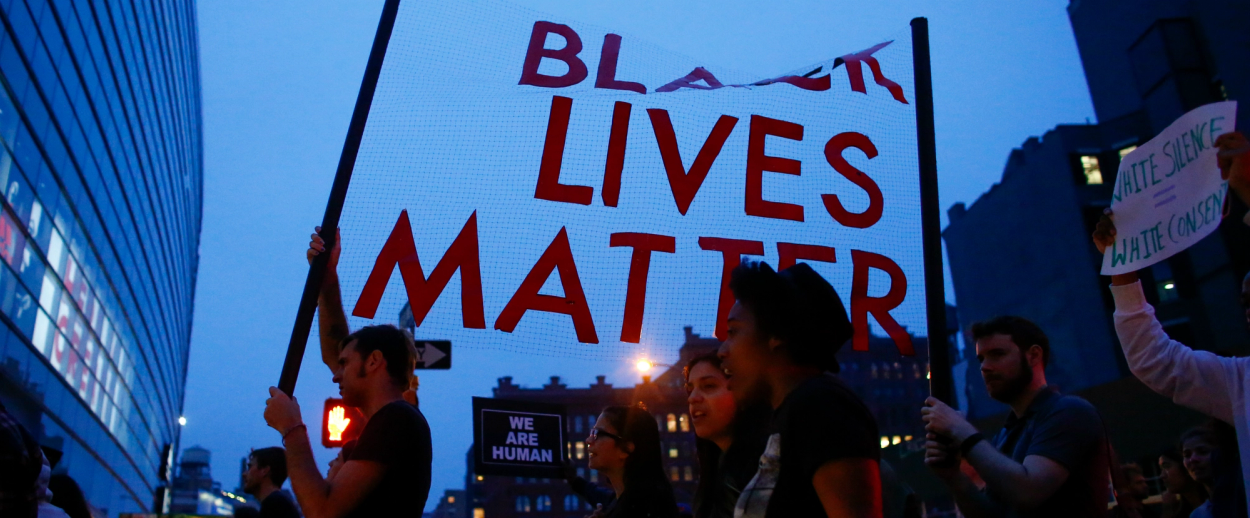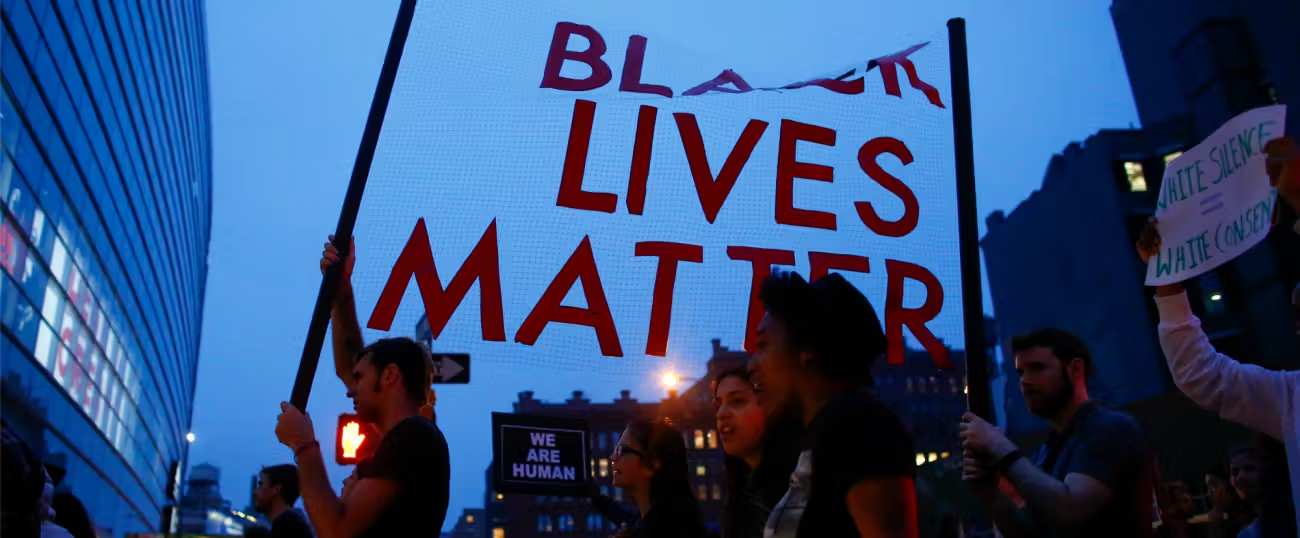As a Jew of Color, I Back Black Lives Matter But Not Its Approach to Israel, Which Erases Jewish Experience
It would be easy to subsume one of my identities to serve the other, but I choose instead to build bridges




“I have a bias in favour of both Arabs and Jews in the sense that I believe that both … are as capable of making peace as of waging war.”
—Ralph Bunche, 1949
The release of the Black Lives Matters (BLM) platform filled me with anticipation as I read, “Black people have bravely and brilliantly been the driving force pushing the U.S. towards the ideals it articulates but has never achieved.” I expected a platform documenting the grave issues facing Blacks today followed by policy recommendations that diverse partners could support. To my surprise, however, the platform crossed the Atlantic to denounce Israel as an apartheid state committing genocide and advocated for boycotting it.
As a Jew of Color who has spent my career working on these issues, usually out of the limelight, I cannot be silent on this contentious issue. No one can deny the Black Lives Matters Movement is crucial, as hardly a day goes by in the last weeks and months without a Black life expiring before our very eyes on social media. However, I can’t help but wonder if, as BLM extends its focus internationally, many Jews of Color, and particularly Black Jews, are being expected to choose BLM over Israel and their Jewish experience. That would be a tragedy.
Jews of Color are not naive to discrimination and racism within our own communities, whether in America or Israel. We have endured suspicion, inappropriate comments, and outright racism. BLM is right to bring these problems to the fore. On the other hand, if BLM is to be true to its call to elevate the “experiences of marginalized Black people,” it cannot forget the hundreds of thousands of Jews of Ethiopia, North Africa, and Arab lands who were persecuted and driven out of their ancestral homes, and found refuge in Israel. It is these experiences that place many Jews of Color like myself into an interstitial space: we desire to stand boldly with BLM yet we also challenge its blanket condemnation of Israel and support for boycotting it.
Over 15 years ago, I learned the importance of interstitiality—of being both part and apart from my communities, and being able to bridge disparate worlds—from Rabbi Robert Marx, founder of the Jewish Council on Urban Affairs. I learned that comfort is not an option. Jews must take risks to speak up for the powerless. We must bring together diverse coalitions to fight injustice. Working with the JCUA’s policy arm on racism, criminal justice, affordable housing, immigration reform, and anti-Semitism meant listening and building relationships on both sides of an issue, to effectively advocate for change.
That same spirit drives me now. As a Jew of Color, I cannot support BLM’s platform in its entirety. I choose discomfort. BLM has the potential to create a dialogue which advances its noble vision of “a world in which the full humanity and dignity of all people is recognized.” The international stage is now open for BLM to advocate policy changes for the lawful and dignified treatment of Black people worldwide. But meaningful change requires creating an atmosphere where dialogue is welcome, not one that shuts it down, as groups like the BDS movement seek to do in boycotting Israel and the Jews who understand the significance of its existence. Change does not come from weaponizing Jewish suffering like the Holocaust and turning it against the Jewish state by wrongly accusing it of genocide. Rather, BLM’s powerful vision will be realized through an open atmosphere, like the one which was the hallmark of African American statesman and Nobel Laureate Dr. Ralph Bunche, who negotiated the 1949 Armistice Agreement between Israel, Egypt, Jordan, Lebanon, and Syria, at the height of American Jim Crow.
This does not mean watering down the pressing issues facing Blacks, whether in America or abroad. It means building the means to combat them—strengthening partnerships, fostering atmospheres which support bilateral negotiations, and respecting the vulnerability of other historically oppressed communities, Jews included.
I intend to do all I can to help make this a reality, because Jews of Color cannot exit the conversation in these uncomfortable times. If anything, perhaps this is the moment we are most needed.
Stacey Aviva Flint is a Jew of Color, urban planner, and Masters candidate in Jewish Studies at the Spertus Institute of Jewish Learning and Leadership in Chicago.